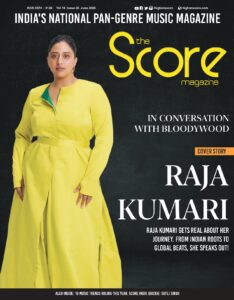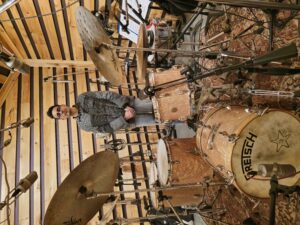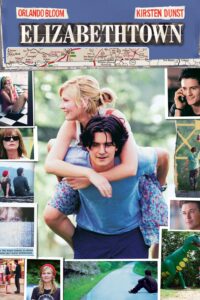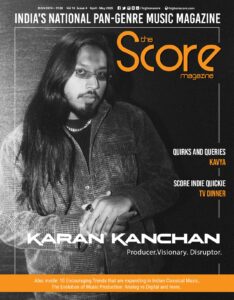Tell us about your writing process? How much effort do you put to consciously channel observations into your lyrics, and how much of it is based on how you feel at the time of writing?
Emotions play a huge role in my writing – but there’s always an incident that I’ve seen or something that ignited that emotion in me that gets me in the zone. Everything I pen down is an observation from something I’ve witnessed – the raw idea for the narrative structure of a song usually stems from this. After that, I spend time analysing my own emotions and thoughts about it and create the final structure.
At a time when music business is heavily influenced by the success of singles, you’ve produced a wholesome album with a uniform narrative, and an undercut theme. Do you ever fear putting out a great album that won’t reach as many people as it should?
Not really. I want to be remembered as one of the greats – I don’t see any hip-hop artist that’s considered a pioneer that didn’t drop a story driven album. It’s a narrative driven, lyrical art-form – and the stories that you explore in your work is what separates you from the rest. I think writing an album, one that is cohesive and is able to retain a listener’s attention throughout, is much harder than just writing a single. That’s where your ability as a rap artist shines and that’s what represents a challenge to me.
If wasn’t constantly challenging myself, I don’t think a career in music would have held the same appeal for me. With every release, the primary goal is my satisfaction as an artist. If I’m not satisfied with the music I’m making, then why would my audience give a shit?
Describe your relationship with your producer Sajeel Kapoor? Do you think there is a dearth of good music producers in the country?
He’s family – if it wasn’t for him, I wouldn’t be where I am – the Indian hip-hop scene in general wouldn’t be where it is. He’s the backbone for this entire industry.
I mean, he’s the other person, besides Happu, who has been there for me through everything. He’s supported me in ways and in situations when I had no one else to turn to – and he didn’t have any reason to do that. I owe him a lot and I hope he gets the respect, praise and success that he deserves.
As a producer, he’s the only one I’ve worked with that understands the role of a hip-hop producer. Making beats is one part of it – he takes that extra step to understand the emotions behind the words, the kind of vocal delivery and tone that’s necessary to do justice to the song and really pushes the artist to explore every possible creative angle. For example, he’s the one who pushed me to start singing and exploring my vocal range, and now it’s reached a point where I’m confident enough to try different styles and incorporate into my songs.
I don’t think there’s a dearth of good music producers in the country, maybe just within hip-hop. I mean, you’ve got two marquee producers in the hip-hop space, Sez and Stunnah, and they’re really, really far ahead of the rest of the game. There are some really talent artists out there – Profound, Lacuna, RHL, Malfnktn, Aerate Sound, Sid Vashi to name a few – but they’re doing their own thing and developing their own sonic aesthetic. There’s also a barrier in the sense that no one knew who the fuck we were up until a couple of years ago – and not a lot of people really bothered to look for us and work with us. It’s happening now and you’ll see a lot of different collaborations taking place in the next few years.
That being said, there’s some interesting stuff happening with artists such as Tre Ess and Swadesi who will hopefully come up the same way Sez and Stunnah have.
What is the importance of a music video to you?
A good music video has the power to transport you into the setting of a song and convey your messages with urgency. It’s a powerful medium that can have a long lasting impact on an audience and gives them an opportunity to really identify with an artist or community on a larger level. For example, with the Suno visual, we really wanted to communicate the urgency of the substance abuse issue in Tilak Nagar and the extremes to which it’d spread. By giving the audience a visual of the area – we tried to make them relate to the community and space as a whole – like this looks just like the apartment block in which you live or the park where your kids play – this could be you. It’s important for the message to stay with audience, and videos are a powerful medium to help accomplish that.
Tell us about your life in the warrens of Tilak Nagar?
I don’t know how exactly to define it – it’s an experience. I’ve seen the worst and best parts of life in Tilak Nagar – from the intergenerational trauma of 1984, the ongoing substance abuse epidemic to the joy of having a tight-knit community, friends and family. I’ve lived through all of this – both the good and the bad. This place prepared me for life – it gave me insights about humanity that I don’t think I could have gotten anywhere else.
Tilak Nagar and it’s people have given me so much – and now I want to do everything in my power for the rest of my life to give back and make it a place that’s the envy of the rest of the country.
How has your cultural identity as a Delhi Punjabi affected your music? Do you ever see yourself putting that aside and tackling new subjects?
Again, it’s defined me. A lot of people today view the Punjabi community (especially in Delhi) as the well off, perfectly integrated part of society – to the extent that our food, culture and language has been mainstreamed and branded as Indian culture.
People forget that it’s only been a little over 3 decades since the 1984 riots and the insurgency movement. The scars are still fresh, especially amongst the survivors in Delhi, and the culprits are still walking free. As a Punjabi kid growing up in one of the main pockets that was affected, you absorb these contrasting experiences – you see both sides of the coin in how this country can treat you. That’s what my music reflects.
I do plan on tackling new subjects – but I can only talk about what I’ve experienced and what I see happening around me – whether that’s love, spirituality, politics or something else. I’m constantly writing down what I’ve witnessed – and now that I’m on tour and going around the country, I’m learning about what goes on in other parts of the country as well.
What can fans expect from your set at the April Fool’s Festival? What are you going to play?
Class-Sikh and a few upcoming releases and collaborations that we’re going to be dropping this year.
Tell us a bit about your upcoming projects?
Currently, I’m writing a few songs and looking for subjects that I can explore in my next album. I’ve got a collaboration with my label mates Seedhe Maut coming out next month, and a few singles that we’ll drop later in the year.








